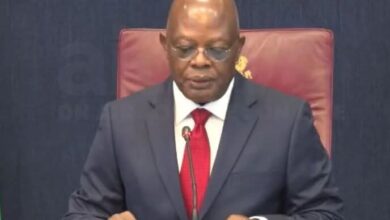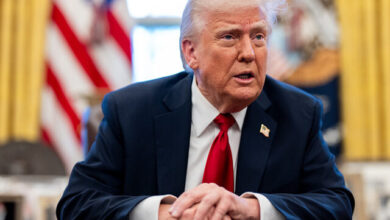World Bank urges Nigerian Government to protect the poor amid rising inflation

The World Bank urges the Nigerian Federal Government to implement necessary reforms promptly to safeguard the poorest citizens from the rising inflation’s effects.
Additionally, it emphasizes that developing strategies to promote productive employment is crucial for effectively reducing poverty nationwide.
In its April 2025 Poverty and Equity Brief, the World Bank highlights Nigeria’s ongoing challenges, including structural economic weaknesses, dependence on oil revenues, and national fragility.

These issues, the report explains, have hindered significant progress toward reducing poverty levels across the country.
Moreover, the earlier Africa’s Pulse publication warns that, over the next five years, increased vulnerabilities may cause more Nigerians to slide into poverty.
To counteract inflationary pressures caused by recent economic reforms, the Nigerian government has introduced temporary cash transfer programs.
Specifically, these programs target 15 million households to help cushion the most vulnerable populations from economic shocks.
However, the World Bank noted that the rollout of these measures has been slow.
Since assuming office on May 29, 2023, President Bola Tinubu’s administration has implemented significant economic reforms, including the removal of fuel subsidies and the floating of the naira.
While these measures aim to stabilize the economy, they have contributed to rising inflation. Nigeria’s annual inflation rate climbed to 24.23% in March 2025 from 23.18% in February, with food inflation easing slightly but still high at 21.79%.
Core inflation, which excludes volatile agricultural and energy prices, rose to 24.43% from 23.01% in the previous month.
On a monthly basis, consumer prices increased by 3.90% in March, up from 2.04% in February.
The World Bank expressed concern over the deepening poverty in Nigeria, noting that since 2018/19, an additional 42 million people have fallen into poverty.
As of 2024, more than half of all Nigerians—54%—are estimated to live below the poverty line.
The report attributed this trend to multiple economic shocks and high levels of insecurity, which have eroded household incomes and purchasing power. Urban areas have been particularly affected, as labor incomes have failed to keep pace with inflation.
The World Bank recommended strengthening Nigeria’s social protection system to build resilience and facilitate investments in human capital.
The report recommends redirecting fiscal savings from recent reforms, such as those involving Premium Motor Spirit (PMS).
This strategic move aims to bolster essential initiatives, thereby ensuring households can better withstand future economic shocks.
Furthermore, these measures seek to reduce intergenerational poverty by enhancing social safety nets and boosting economic resilience across communities.
Furthermore, the World Bank emphasizes the importance of economic diversification to expand Nigeria’s non-oil sector and generate private sector jobs.
To foster sustainable development, investments must prioritize public services, including health, education, and infrastructure.
Furthermore, these investments should aim to improve efficiency and effectiveness, especially given Nigeria’s limited fiscal capacity.
By focusing on these sectors and optimizing resource use, Nigeria can accelerate development and build long-term resilience.
Additionally, the report highlights significant regional disparities in poverty levels across Nigeria.
According to the National Bureau of Statistics (NBS), 30.9% of Nigerians lived below the $2.15 daily poverty line in 2018/19. This statistic emerged even before the COVID-19 pandemic exacerbated existing economic challenges across the country. Consequently, it reveals a pressing need for well-crafted policies that can effectively address these ongoing difficulties.
Moreover, the data indicates a notable regional divide in poverty rates across Nigeria. Specifically, northern regions experience alarming poverty rates of 46.5%, while southern zones report significantly lower rates of 13.5%. This stark contrast emphasizes the importance of targeted interventions that must cater to each region’s unique needs to effectively reduce inequality.
Furthermore, the World Bank urges immediate and comprehensive reforms to tackle these pressing issues head-on. They emphasize that swift action is crucial for overcoming current hardships and ensuring Nigeria’s long-term economic stability. By implementing these reforms, Nigeria can create a more equitable environment that fosters growth and development for all citizens.
In conclusion, addressing poverty in Nigeria requires collaboration among government agencies, NGOs, and international organizations. By working together, stakeholders can develop sustainable solutions that not only alleviate poverty but also promote economic resilience across the nation.
Addressing these challenges is crucial for uplifting Nigeria’s vulnerable populations and promoting inclusive growth.
Post Views: 18





